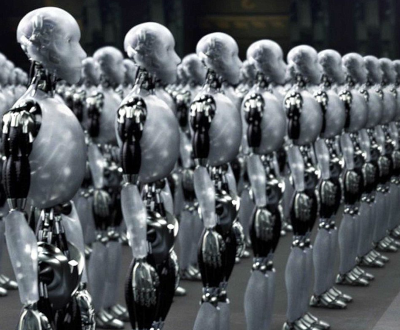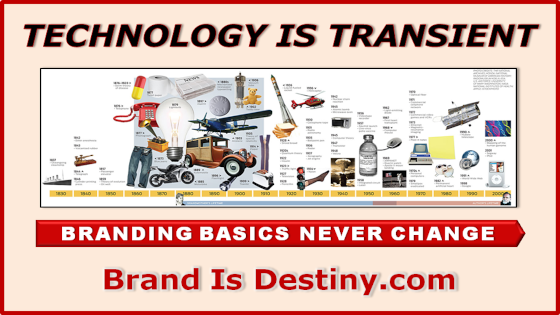 There’s a section of Pittsburgh, Pennsylvania, overlying the Strip District and Lawrenceville, called Robotics Row. Many are hailing this patch as the new tech mecca of Pittsburgh.
There’s a section of Pittsburgh, Pennsylvania, overlying the Strip District and Lawrenceville, called Robotics Row. Many are hailing this patch as the new tech mecca of Pittsburgh.
The impetus for this concentration of resources is Carnegie Mellon University. This world-renowned hub of computer science established the nation’s first undergraduate degree in artificial intelligence (AI) and located its National Robotics Engineering Center in Lawrenceville — for decades a run-down neighborhood.
Simply put, AI is software that rapidly sifts through large quantities of data to find patterns and draw conclusions. Increasingly, AI is able to find tumors in digital medical images (X-rays, sonograms, MRIs) that radiologists miss. AI determines whether you qualify for a credit-card or a mortgage.
Robotics encompasses the building of software-controlled mechanical devices that perform repetitive human tasks, often in hazardous environments. Robots fetch and package what you purchase from Amazon. Robots assemble, weld, and paint cars on assembly lines.
Now, the likes of Argo AI, Astrobotic, Bossa Nova Robotics, Carnegie Robotics, HEBI Robotics, IAM Robotics, Idelic, RE2 Robotics, Simcoach Games, and Voci Technologies grace the landscape.
One-Industry Towns Almost Always Collapse
Is this single-industry concentration, devotion, and ebullience wise? Will it benefit Pittsburgh?
In the short term, yes: It attracts technical talent and stimulates revolutionary business creation, both of which Pittsburgh badly needs.
History proves, however, that, in the long-term, it will backfire. Here are three key reasons:
First, technology is an ephemeral, transient means to an end — NOT the end. People repeatedly make the mistake of falling in love with a technology, only to find, often too late, that another one has replaced it.


Second, technology, per se, does not solve every problem. Robotics and AI, specifically, do not and will not solve every problem. Moreover, new technologies will supplant them. Alas, tech cheerleaders are blind to this.
AI, in numerous cases, has made customer service impersonal and mindnumbingly bad (read about my horrendous experience with Best Buy and SiriusXM). Too often, the AI engineers have little practical life experience.
Third, one-industry towns almost always collapse. Just as success in growing a financial portfolio requires diversification, so does success in growing a municipal one.
The Strip District, as my recent column explains, was once focused on wholesale produce. That business died in the 1970s, and the Strip along with it. Pittsburgh itself was once the steelmaking capital of the world, until it wasn’t. In the 1980s, steel mills closed, local businesses shuttered in response, and unemployment zoomed. The city, finally, is recovering, after 40 years of strife.
Peoria, Illinois, in the early 1900s, produced about one-fifth of America’s liquor. Liquor! What could go wrong? For one thing, 13 years of the Prohibition era. After Prohibition ended, Peoria was moribund and couldn’t restart. Caterpillar moved in, then out. The city never became what it once was.
Here’s a list of 10 one-industry cities that are now considered forever dead: Buffalo, NY (grain, steel); Flint, MI (cars); Hartford, CT (insurance); Cleveland, OH (rubber); New Orleans, LA (shipping); Detroit, MI (cars); Albany, NY (shipping); Atlantic City, NJ (tourism); Allentown, PA (steel, manufacturing); Galveston, TX (shipping, gambling).
Let not Robotics Row someday join this list.
Parting Advice to CEOs, Developers, and City Officials
Avoid falling in love with a technology, an ephemeral means to an end, and building what Brits call a monotown, a city devoted to one industry and/or one company.
The more people shout “robotics” from the rooftops, worship robotics, and single-mindedly recruit robotics companies to Pittsburgh, the more dependent the area becomes on a technology. Deja vu all over again.
Instead, build and cultivate a multidisciplinary area. Call it Revolutionary Row or Renaissance Row — unattached to the vagaries and vicissitudes of any particular industry, company, or technology trend.
Overall, Pittsburgh will benefit from Robotics Row, but only if this budding collection of startups is part of a larger portfolio of partially related and unrelated industries and disciplines — and doesn’t dominate the lot.
To paraphrase Edmund Burke: Those who either don’t know or ignore history are doomed to repeat it, thereby causing another cycle of massive financial ruin and unemployment.
© 2020 Marc H. Rudov. All Rights Reserved.
About the Author

Marc Rudov is a branding advisor to CEOs,
producer of MarcRudovTV, and author of four books

